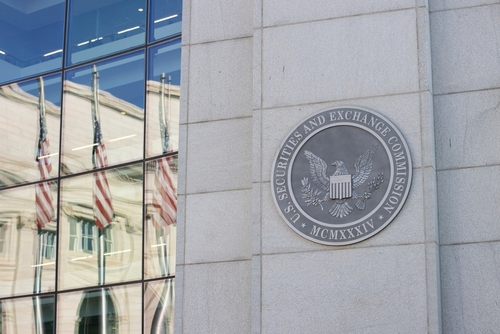
Dear Clients and Friends,
SEC Adopts Amendments to Modernize Rule 10b5-1 Insider Trading Plans and Related Disclosures
The Securities and Exchange Commission (“SEC”) adopted amendments to Rule 10b5-1 under the Securities Exchange Act of 1934 (“Rule 10b5-1”) and new disclosure requirements to enhance investor protections against insider trading. The amendments include updates to Rule 10b5-1(c)(1), which provides an affirmative defense to insider trading liability under Section 10(b) and Rule 10b-5. Collectively, the final amended Rule 10b5-1 (the “Amended Rule”) aims to strengthen investor protections concerning insider trading and to help shareholders understand when and how insiders are trading in securities for which they may at times have material nonpublic information.
The Amended Rule applies to U.S. domestic issuers as well as to foreign private issuers.
Rule 10b5-1 Insider Trading Plans:
Rule 10b5-1 offers a defense to the charge of illegal insider trading for securities transactions executed according to a plan entered into when the trader does not have material nonpublic information (“MNPI”), about the registrant. Since directors, officers and other registrant insiders may occasionally hold MNPI, they may use Rule 10b5-1 trading plans to sell and buy registrant securities, and the registrants themselves may use the plans when conducting share buybacks. Rule 10b5-1 provides affirmative defenses for corporate insiders and registrants to buy and sell registrant securities as long as they adopted their trading plans in good faith, before becoming aware of MNPI.
Main Changes Adopted in the Amended Rule:
Mandatory cooling off periods for insiders
Rule 10b5-1 does not currently impose any waiting period between the time a plan is adopted or amended and the date of the first trade under the plan. The Amended Rule changes that as follows:
(1) A cooling-off period of at least 90 days for plans applicable to directors and officers – the Amended Rule includes a mandatory cooling-off period following adoption or modification of a 10b5-1 plan, which starts on the adoption or modification date of the plan and ends on the later of (i) 90 days thereafter and (ii) two business days following filing of Forms 10-K, 10-Q, 6-K, or 20-F, as applicable, covering the financial reporting period in which the plan was adopted or modified, but in no event later than 120 days.
(2) A cooling-off period of 30 days for traders other than directors and officers.
(3) No cooling-off period for registrants.
(4) Modifications that do not change the pricing, amount of securities or timing of trades will not trigger a new cooling-off period. In addition, changes in brokers executing trades on behalf of the insider under the Amended Rule would not be treated as modifications in the plan, as long as the purchase or sales instructions remain unchanged.
Prohibition on overlapping plans and limitation on single-trade plans
The Amended Rule restricts anyone other than the registrants themselves from using multiple overlapping plans, other than as follows:
(1) A series of separate agreements with different brokers may be considered as a single plan, provided that the agreements, taken together, meet the conditions under the Amended Rule. In this respect, it should be noted that modifications of any agreement would be treated as a modification of each other agreement under the plan.
(2) Overlapping plans that do not authorize trading during the same periods may be allowed under certain circumstances – the Amended Rule permits overlapping plans if trading under a later plan is not authorized until all trades under earlier plans are completed.
(3) “Sell-to-cover” tax withholding plans are permitted under the Amended Rule, if they authorize an agent to sell only the securities necessary to satisfy the tax withholding obligations, and the insider does not otherwise control the timing of the sales.
Officers’ and Directors’ Representations
The Amended Rule provides that upon adopting a plan, an officer or director would be required to include a representation under the plan certifying that they are not aware of MNPI and that they are adopting the plan in good faith and not as part of a plan to evade the prohibition against illegal insider trading.
Disclosure of Trading Plans and Policies
Under Rule 10b5-1 as currently in effect, there is no requirement to publicly disclose the adoption, amendment or termination of a trading plan and registrants are not required to disclose the details of their insider-trading policies. The Amended Rule adds disclosure requirements for both, as follows:
(1) Quarterly disclosure of trading plans – pursuant to the Amended Rule, registrants would be required to disclose in Forms 10-K and 10-Q whether, during the registrant’s last fiscal quarter, any officer or director has adopted, amended or terminated any trading plan, along with a description of the material terms of the plan, which include (i) the name and title of officer or director, (ii) the adoption or termination date, (iii) the term of the plan, and (iv) the aggregate amount of securities to be sold or purchased under the plan. The Amended Rule also requires registrants to disclose whether a trading plan is a “Rule 10b5-1 trading arrangement” (and requires similar disclosure for “non-rule 10b5-1 trading arrangements”) and requires disclosure of the adoption or termination of such arrangements.
(2) Annual disclosure of insider-trading policies – pursuant to the Amended Rule, registrants would be required to disclose in their annual reports whether they have adopted policies for directors, officers and employees that are reasonably designed to promote compliance with insider trading laws (or disclose why not). These disclosures will be required in annual reports on Form 10-K, proxy and information statements on Schedules 14A and 14C and inForm 20-F. The Amended Rule requires the filing of the insider trading policies as an exhibit to the relevant form.
(3) Foreign Private Issuers vs. U.S. Domestic Issuers – unlike the other new amendment presented by the Amended Rule – the new quarterly disclosure requirements with respect to trading plans of directors and officers do not apply to foreign private issuers, since such amendment is applicable for registrants who file periodic reports on Forms 10-K and 10-Q. U.S. Domestic issuers are subject to both the quarterly and annual disclosure requirements.
Effective Date
(1) The Amended Rule will become effective 60 days following publication of the adopting release in the Federal Register.
(2) Officers and directors who are Section 16 reporting persons will be required to comply with the amendments to Forms 4 and 5 for beneficial ownership reports filed on or after April 1, 2023.
(3) Registrants will be required to comply with the new disclosure requirements in Exchange Act periodic reports on Forms 10-Q, 10-K and 20-F and in any proxy or information statements in the first filing that covers the first full fiscal period that begins on or after April 1, 2023. In this respect, we note that the final amendments defer by six months the date of compliance with the additional disclosure requirements for smaller reporting companies.
Click here for the copy of the Amended Rule
We would be happy to assist you with any questions or clarifications you may have with respect to this Client Update.
For additional information, please contact the following:
Adv. Shelly Blatt Zak
Adv. Ivor Krumholtz
Capital Markets & Hi-Tech Department
Shibolet & Co. Law Firm
This update is provided as general information only and may not be relied upon in any individual case without additional legal advice.









